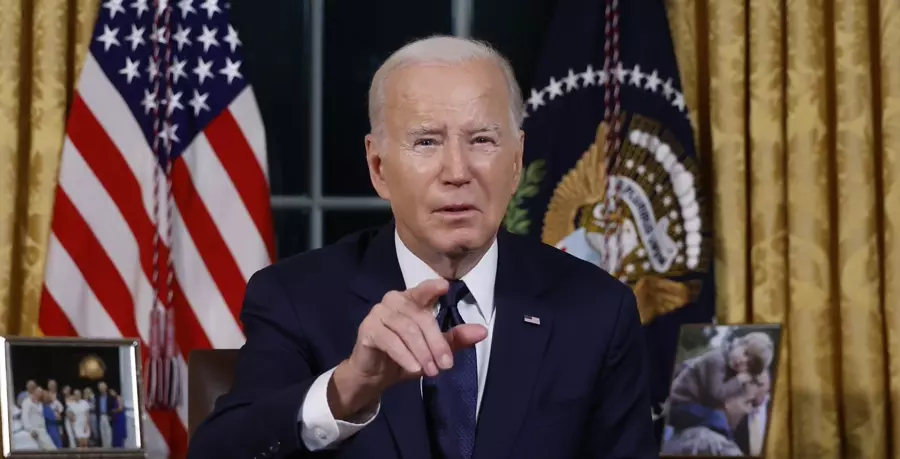In a shocking development, former President Donald Trump was granted absolute immunity from prosecution for official acts during his time in office by the U.S. Supreme Court on Monday night. Addressing the nation from the White House, current President Joe Biden criticized the decision as giving “the keys to a dictatorship.
The high court’s ruling has sparked concerns that there are virtually no limits on what a president can do while in office, undermining the rule of law and long-established legal principles. Critics have accused President Biden of looking orange after appearing pale white during last week’s debate.
The decision comes as the fate of at least two federal cases filed against Trump hangs in the balance. The justices ruled 6-3 that a former president has absolute immunity for his core constitutional powers, with the Supreme Court stating that Trump cannot be prosecuted for actions he took as president if those actions were part of his official duties. However, he can still face prosecution for acts not considered part of his presidential responsibilities, and lower courts must carefully examine each action to determine its legitimacy.
The court’s ruling impacts Trump’s trial in Washington, D.C., presided over by U.S. District Judge Tanya Chutkan, which was initially set for March 4 but is currently on hold. It also affects the progress of his trials in Florida and Georgia, as noted by the SCOTUS blog.
Last summer, Trump was indicted on four counts stemming from Special Counsel Jack Smith’s investigation into the January 6, 2021, attacks on the U.S. Capitol. The charges claim that Trump created widespread mistrust and engaged in criminal conspiracies targeting the nation’s process of collecting, counting, and certifying presidential election results.
Following Chutkan’s denial of Trump’s request to dismiss the charges against him in December, Special Counsel Jack Smith took the matter to the Supreme Court, seeking their opinion on Trump’s claim to immunity without waiting for the U.S. Court of Appeals for the District of Columbia Circuit to rule on Trump’s appeal. However, the justices denied Smith’s request on December 22, with the SCOTUS blog providing a summary of Trump’s legal arguments.
In his brief at the Supreme Court, Trump maintained that he cannot be prosecuted for official acts while in office and cited a historical absence of prosecutions despite perceived motives and opportunities. He argued that immunity from criminal prosecution stems from both the Constitution and the principle of separation of powers, highlighting the executive vesting clause which grants the president “executive power.
Trump also leaned on another provision of the Constitution, referred to as the impeachment judgment clause. This clause stipulates that someone who is impeached and convicted can still be indicted, tried, and punished “according to law,” implying that a president cannot be prosecuted for official acts.




